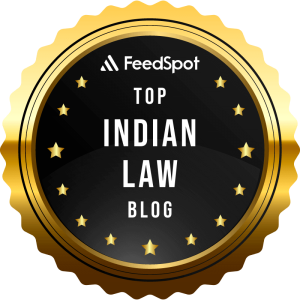JUDICIAL PROCEEDINGS MUST REMAIN OPEN TO PUBLIC DISCOURSE AND LEGITIMATE CRITIQUE; SUB JUDICE MATTERS MAY ALSO BE SUBJECT TO DISCUSSION BY THE PRESS AND PUBLIC

On Friday, May 9, The Hon’ble Supreme Court recently overturned a Delhi High Court order that had directed the removal of a Wikipedia page concerning defamation proceedings initiated by the news agency Asian News International (ANI) against Wikimedia. The High Court had found the page to be prima facie contemptuous and potentially interfering with ongoing legal proceedings. However, the Apex Court reaffirmed the principle that courts are open institutions and emphasized that media reporting on judicial matters cannot be restricted without substantial justification
In the matter of Wikimedia Foundation Vs ANI Media Private Limited & Ors. (Civil Appeal No. 5391 of 2025) (2025 INSC 656), decided on 9th of May, 2025, a Bench comprising Justice Abhay S Oka and Justice Ujjal Bhuyan reaffirmed that courts function as open institutions and that restrictions on media reporting of judicial proceedings should not be imposed lightly.
The Bench held that courts, as public institutions, must remain accessible to the public, and even matters that are sub judice can be openly discussed by both the public and the press. Under Para 30, the Court states how it is not the Court’s role to instruct the media on what to delete or retain. The Judiciary and the media are both essential pillars of democracy, a core feature of the Constitution. For a liberal democracy to flourish, they must work in harmony and support each other.
The Precedents
The judgment referenced the Supreme Court’s ruling in Sahara India Real Estate Corporation Limited v. Securities and Exchange Board of India (2012) 10 SCC 603, which held that courts may direct the postponement of media reporting on judicial proceedings only if there is a demonstrated, substantial risk of prejudice to an ongoing trial. In Sahara, the Court emphasized that such postponement orders must meet the dual criteria of necessity and proportionality, and should be applied only when non-publication for a limited time is essential to ensure the fairness of proceedings.
The Judgment also cited the 9-Judges Bench decision in Naresh Shridhar Mirajkar v. State of Maharashtra (AIR 1967 SC 1), wherein it was held that a trial conducted under public scrutiny inherently serves as a safeguard against judicial arbitrariness or unpredictability, and functions as a vital means of fostering public confidence in the fairness and impartiality of the justice delivery system.
The court, as a public and transparent institution, must remain open to public observation, discussion, and critique. In fact, it should encourage open debate and constructive criticism. Every significant issue warrants public and media discourse, even when such matters are sub judice.
However, those who criticize must keep in mind that judges are not in a position to publicly respond. If a publication crosses the line by scandalizing the court or its judges, and a clear case of contempt arises, the court is within its rights to take appropriate action.
However, it is not the court’s function to dictate to the media what content must be deleted or retracted. The betterment of any system — including the judiciary — depends on self-reflection, which is only possible through vigorous and open debate, even on matters currently under judicial consideration.
The continued operation of the injunction would amount to an undue restriction on the freedom of the press, effectively serving as a form of preventive censorship. The public has a fundamental right to be informed, as this enables meaningful participation in the democratic and industrial development of the nation. The right to know forms an integral part of the broader right to life enshrined in Article 21 of the Constitution. In the current era, this right has assumed greater significance and urgency, reflecting its evolving dimensions in a democratic society.
SARTHAK KALRA
Senior Legal Assocaite
The Indian Lawyer & Allied Services
Please log on to our YouTube channel, The Indian Lawyer Legal Tips, to learn about various aspects of the law. Our latest video, titled “Legal Aspects of War | How International Law Governs Armed Conflicts | Advocate Sushila Ram Varma”
https://youtu.be/GIem2EVGjOI?si=_zY8UpDT16phcNa1





































Leave a Reply